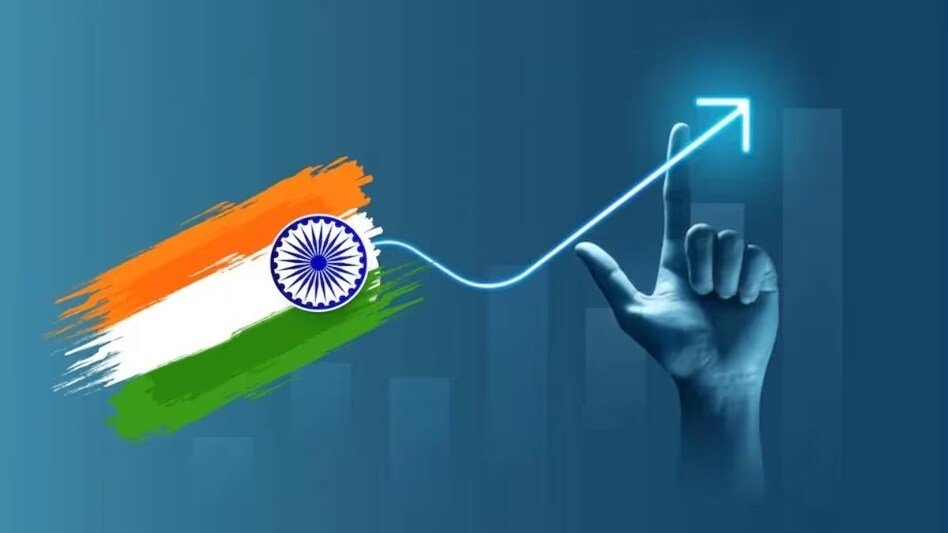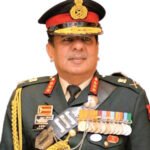Making Surakshit Bharat a Reality : As the new government takes charge, it is time for introspection and re-envisioning the inclusive approach to making India a developed country when it celebrates its centenary of Independence. However, the ideals of Viksit Bharat@2047 cannot be achieved unless the path is secured by Surakshit Bharat@2047. After all, in the trinity of Defence, Development and Diplomacy, unless the defence is empowered, the development becomes weak and diplomacy vulnerable.
It is also a time to learn, unlearn, de-learn and re-learn. Constructive criticism is a positive attribute of sustained and inclusive growth of every organisation. As Gen Patton had said, “If everyone is thinking alike, then somebody isn’t thinking.” Being surrounded by an army of ‘yes men’ is like putting a tank in a bog.
The opportunity for continuity and consistency in transformational government policies must find the desired space. There is no doubt that the last ten years have ushered in an era of growth, transformation, and landmark decisions such as the abrogation of Article 370 besides putting India on a higher pedestal in the global arena. Yet absolute power tends to drive democracy closer to autocracy. The sign of a vibrant democracy lies in checks and balances through coalition politics and collective wisdom. The winners of the 2024 elections must remember this.
The sign of a vibrant democracy lies in checks and balances through coalition politics and collective wisdom. An absolute power tends to drive democracy closer to autocracy. Constructive criticism is a positive attribute of sustained and inclusive growth of every organisation. “If everyone is thinking alike, then somebody isn’t thinking,” says Gen Patton, Being surrounded by an army of ‘yes men’ is like putting a tank in a bog.
Lessons for the Polity from the Military
Learning is a never-ending endeavour. The most respected institution, the Indian Armed Forces, has its roots grounded in the spirit of Nation Above All, and thus, a few lessons from the military ethos remain relevant to Indian politics in general.
▪ Never underestimate your adversary. Respect, not ridicule to be better prepared for the clash.
▪ Overconfidence creates a false hallow and breeds complacency. Look up but keep your feet on the ground.
▪ The militarisation of polity and politicisation of the military is not in the national interest.
▪ Information warfare alias IT Cells churns fantasies but can’t subdue ground reality. Loud is not always strong and measured on the ground.
▪ Leadership is all about the people you lead. They know you better than yourself and are your best judge. “The Man in the Mirror” by Dale Wimbrow remains a sacred reminder for all.

The Idea of India: Must Never Be Compromised
The idea of India is a living, breathing foundational construct that continues to evolve and shape the nation’s trajectory as it surmounts the challenges to its centennial independence anniversary. It is a tapestry woven from the threads of unity in diversity, secularism, inclusivity and tolerance, democratic governance, cultural heritage, social justice, and economic progress as the identity of Bharat, in the spirit of “Nation Above All”. This idea has evolved over millennia, reflecting the collective consciousness of its people and their unwavering commitment to upholding these values of inclusivity, secularism, rich culture and social harmony. As India marches forward furtherance of these values that define the essence of the nation must remain foundational and never be compromised.
A few lessons from the military ethos remain relevant to Indian politics. First, the militarisation of polity and politicisation of the military is not in the national interest. Second, Information warfare alias IT Cells churns fantasies but can’t subdue ground reality. Loud is not always strong and measured on the ground. Third, leadership is all about the people you lead. They know you better than yourself and are your best judge. “The Man in the Mirror” by Dale Wimbrow remains a sacred reminder for all.
Revisit Defence Agenda
The Indian Armed Forces are the final bastion of the nation and the most respected institution of the country defined by their core values, loyalty and integrity. A soldier symbolises patriotism rather than hypernationalism, and secular-cum-apolitical character rising above partisan politics. For him, Naam, Namak, and Nishan of his unit define his DNA of loyalty, integrity, and Camaraderie. Nation Above All and love for tricolour are not slogans but deep emotions that lead him to the altar of supreme sacrifice with a smile. The national anthem remains his soulful hymn. So, to empower this great institution, both the human terrain and military posture need to be addressed.
Human Terrain: The soldier remains the most vital battle-winning resource of the country. His empowerment, status, respect and value of life must never be diluted. Political ungrounded interference or petty politics must not drive ill-conceived transformation like Agniveer scheme which dilute the armed forces operational efficiency and are not a panacea for enhancing national security. The voice of the warfighter on ground must be heard, not altered to convenience. Nor should joining the armed forces for short duration be perceived as a cost-effective business model. Chanakya’s advice to Chandragupta Maurya remains relevant: “The day a soldier has to demand his dues will be a sad day for Magadha. From then on you have lost all moral sanctions to be king.”
So, what does this brave soldier of the nation expect from the nation and its political masters?
Empowerment to fight, win, and return home victorious. Defence is a national insurance, not a business, nor a vote bank politics.
A soldier symbolises patriotism rather than hypernationalism, and secular-cum-apolitical character rises above partisan politics. He remains the most vital battle-winning resource of the country. His empowerment, status, respect and value of life must never be diluted. Nor hurried political expediency drives human resource transformation by ill-conceived schemes like Agniveer.
Preservation of his status and dignity in society. Successive downgrading and unwarranted infringement on matters of defence by polity and bureaucracy have hurt the morale and prestige of soldiers. This warrants both sensitivity and maturity.
Maintaining of defence forces apolitical. Political patronage or parochialism in selecting apex-level appointments is a dangerous game, which impacts not only national security but also the morale of the defence forces. An army of ‘yes men’ is dangerous.
Befence reforms must be driven by the operational imperatives and empowerment of the foundational unit entity. Political or financial drivers must not subvert national security. Change of dress or names or subverting institutions in the name of Indianisation sans professional logic.
Respect and care for veterans and families of martyrs and disabled soldiers. A veteran’s greatest desire is respect and basic livelihood. The government must enhance outreach, compassion, and support for veterans and families, avoiding actions that diminish their status and care. The arena of Veernari’s and Veer Families leaves much to be desired and has become more of a photo op to be soon forgotten in the wilderness.
A veteran’s greatest desire is respect and basic livelihood. The government must enhance outreach, compassion, and support for veterans and families, avoiding actions that diminish their status and care. The arena of Veernaris and Veer Families leaves much to be desired and has become more of a photo op to be soon forgotten in the wilderness
Strengthening the Military Posture: The threats to national security both kinetic and non-kinetic are escalating particularly from our Northern Borders. “War is not an option” is euphoric but must not be at the cost of diluting national defence. Nor is time and asymmetry on our side. The undermentioned thus requires the focus of the policymakers.

National Security Strategy: A well-defined ‘India First’ national security policy and strategy are imperative for a coherent, pre-emptive, and proactive strategic response. Informal existence as preached is no solace. Further, the void of a National Defence University remains a major deficit.
Aatmanirbharta and Defence Industrial Base: Investment in self-reliance and self-sufficiency with a focus on indigenous technology infusion is necessary. While a lot has progressed, the performance potential gap needs to be bridged. Policy reforms based on risk sharing gain sharing model and continuity of policy must define a framework. Home-grown R&D, Indigenous solutions not just indigenisation, technology mapping and price indexing, and a collaborative not cocooned approach must define the future.
Multidomain Deterrence: Building a robust deterrence strategy requires leveraging the full spectrum of national power. Diplomatic, information, military, economic, financial, intelligence and cyber capabilities must be intricately woven together across all domains of warfare. A blend of military strength, economic resilience, cybersecurity, and soft power is essential for effective deterrence.
Modernise Military Capabilities: Realistic budgeting, self-reliance, and joint doctrines, structures, and training are crucial for countering future threats. Investment in modernising the armed forces, drones/ UAVs, focusing on advanced technologies like AI and quantum computing, space and oceanic capabilities, and multi-domain joint force capability is imperative. Any structural review must first be grounded in empowering its foundational pillars for a combat overmatch.
Counterterrorism and Intelligence Cooperation: Strengthening counterterrorism efforts through enhanced intelligence capabilities and international collaboration is vital. Coordinated efforts in intelligence sharing and joint operations are necessary to address the evolving threat landscape posed by non-state actors.
Cyber Resilience: Enhancing cyber-domain measures to protect critical infrastructure, sensitive information, and financial systems is paramount. Developing a robust cyber offensive and defensive strategy with pre-emptive, proactive, and preventive measures is essential for national security. Similarly, all organs of the non-kinetic domain need empowerment.
In conclusion, India faces multifaceted challenges in its security paradigm, demanding a comprehensive and adaptive approach to address both external and internal threats effectively. The lessons from global conflicts and the imperatives for strengthening the human terrain and military posture provide a roadmap for India to navigate its security landscape in the 21st century. The new government in power will do good to the nation to be sensitive and empower the national defence. A lot has been done but a lot needs to be revisited and course corrections done.
-The author is a PVSM, AVSM, VSM has had an illustrious career spanning nearly four decades. A distinguished Armoured Corps officer, he has served in various prestigious staff and command appointments including Commander Independent Armoured Brigade, ADG PP, GOC Armoured Division and GOC Strike 1. The officer retired as DG Mechanised Forces in December 2017 during which he was the architect to initiate process for reintroduction of Light Tank and Chairman on the study on C5ISR for Indian Army. Subsequently he was Consultant MoD/OFB from 2018 to 2020. The Officer is a reputed defence analyst, a motivational speaker and prolific writer on matters of military, defence technology and national security.The views expressed are personal and do not necessarily carry the views of Raksha Anirveda
The author, a PVSM, AVSM, VSM has had an illustrious career spanning nearly four decades. A distinguished Armoured Corps officer, he has served in various prestigious staff and command appointments including Commander Independent Armoured Brigade, ADG PP, GOC Armoured Division and GOC Strike 1. The officer retired as DG Mechanised Forces in December 2017 during which he was the architect to initiate process for reintroduction of Light Tank and Chairman on the study on C5ISR for Indian Army. Subsequently he was Consultant MoD/OFB from 2018 to 2020. He is also a reputed defence analyst, a motivational speaker and prolific writer on matters of military, defence technology and national security. The views expressed are personal and do not necessarily carry the views of Raksha Anirveda






